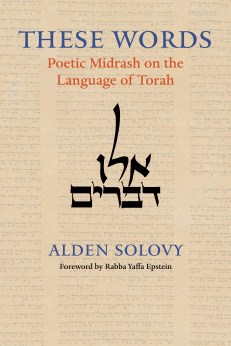
Poet and liturgist Alden Solovy, a CCAR Press author, shares two poems for Passover:
At the end of the Passover Seder, people around the world say that we have told the tale, followed by “next year in Jerusalem.” Few, if any, actually act on that aspiration. In one sense, it is the impossible dream. We all—even those of us who actually reside here—aspire to live in the heavenly Jerusalem, the fantastic, archetypal dream of Messianic wholeness and peace, with the word of God radiating into all of existence. And our story is far, far from completed. I offer this, then, as a new aspiration to add to the end of our Seders. It is, in part a response to October 7, in part a call to remember the long arc of our history. My suggestion: say this prayer-poem followed by “next year in Jerusalem.”
Our Story
Our story is not complete.
Oh no.
There will be more highs
And lows,
But the ending,
Oh my,
Will be tremendous.
This is faith.
Faith knows
That our story is not complete,
And the ending
Is beyond
All our hopes
For joy and wonder.
Elijah Is with the Hostages
Elijah,
The prophet who will announce salvation and peace,
Will not visit your Pesach Seder this year.
Don’t fill the cup. Don’t waste the wine.
The prophet is exhausted,
Pleading with the heavens for the hostages
Pleading the heavens for the displaced,
The grieving and lost.
Find hope in your own hands,
In deeds of repairing the world
And acts of lovingkindness.
Elijah is not coming to your Seder.
The work of healing the world,
And bringing redemption,
He has left to us.
Alden Solovy is a liturgist and rabbinic student based in Jerusalem. He is the author of This Grateful Heart: Psalms and Prayers for a New Day, This Joyous Soul: A New Voice for Ancient Yearnings, This Precious Life: Encountering the Divine in Poetry and Prayer, These Words: Poetic Midrash on the Language of Torah, and Enter These Gates: Meditations for the Days of Awe, all published by CCAR Press. His poetry can also be found at ToBendLight.com.

















